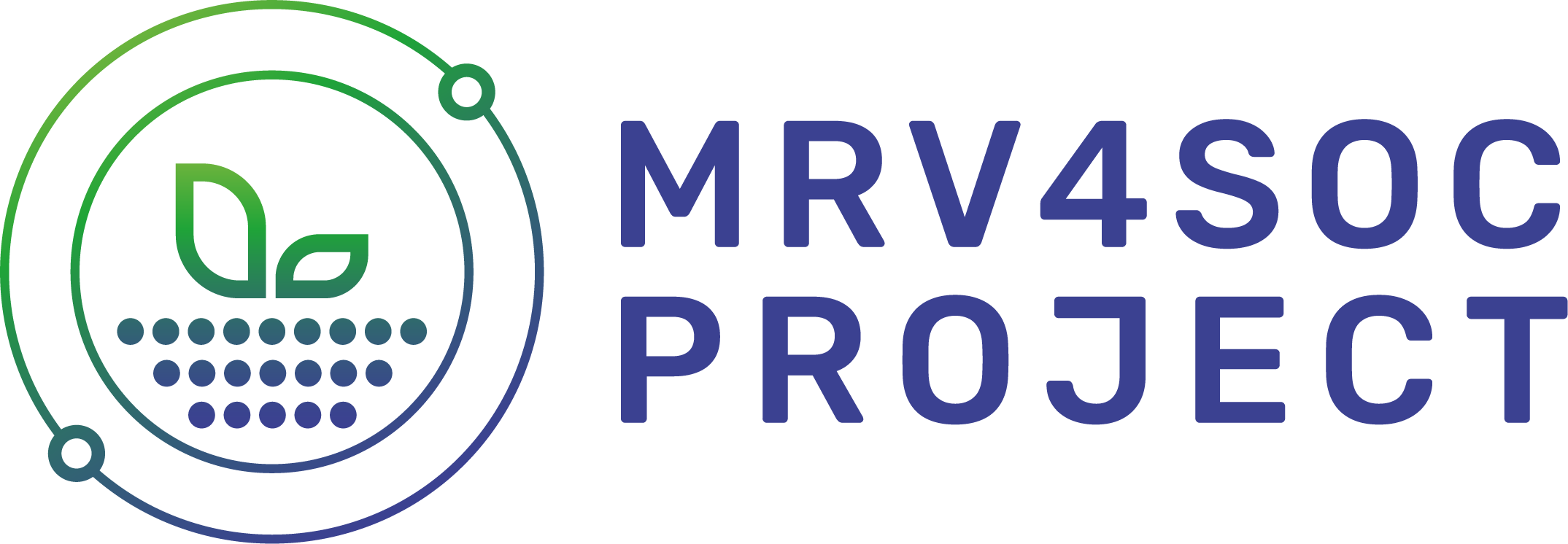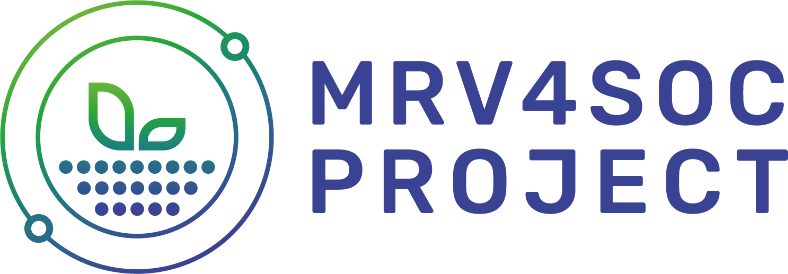The European Union aims to be climate-neutral by 2050. This means rethinking the economy and production processes.
MRV4SOC is a 3-year EU-funded project with a budget of ≈ 7 M€ for Monitoring, Reporting and Verification of Soil Organic Carbon. Soil plays a pivotal role in the EU Green Deal because the sequestration of carbon in soil organic matter is one of the main cost-effective climate mitigation strategies for removing global-warming carbon dioxide (CO2) from the atmosphere.
Soils, through their sequestration mechanism, can remove CO2 from the atmosphere. Vegetation, in fact, absorbs CO2 which is necessary for its growth, and soil can store it in its pool of organic carbon.
MRV4SOC will explore how different land uses and covers influence the soil’s ability to absorb and store organic carbon. It will acquire data on carbon sequestration and greenhouse gas emissions linked to land use in 14 demo sites in Europe accounting for different climatic and socioeconomic conditions.
The project will use high-quality in situ and remote sensing data to build reliable models for a better understanding of carbon fluxes in soils. Its methodology relies on robustness, standardisation, transparency and cost-effectiveness to:
- account for changes in as many carbon pools as possible
- estimate greenhouse gases and full carbon budgets
- couple carbon and nitrogen cycles
- quantify soil organic carbon accumulation
- assess the results of traditional management practices and carbon farming.
MRV4SOC’s consortium is made up of 20 partners from 10 countries: GMV, UCLouvain, AUTH, TAU, CZU, ISRIC, CREA and ERSAF, UAntwerpen, DLR, CNRS, CSIC, ICONS, SC, EVENOR, K&I, UVIGO, NIBIO, ULIEGE, GFZ, and UG. It investigates methodologies that account for the full GHG and C budget meeting the QU.A.L.ITY criteria (QUantification, Additionality and baselines, Long-term storage, and sustanabilITY).
Measuring the long-term organic carbon soil accumulation is the key to assessing the impact of carbon farming practices on carbon fluxes, creating soil communities fostering knowledge exchange, increasing trust in voluntary carbon markets and identifying opportunities for result-based payments.
Dig deep into the beauty and complexity of our soils with MRV4SOC, follow its progress to contribute to building a better future for all.


